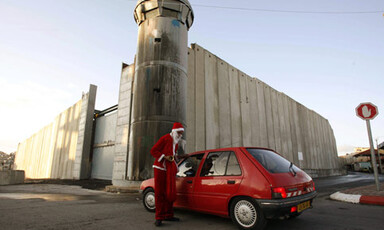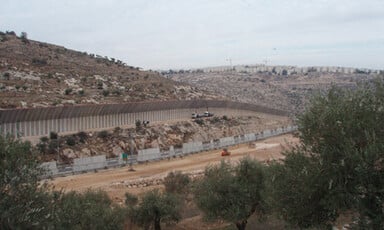
In the same prison together
24 December 2007
The tranquil Christmas nativity scene so familiar to us is not at all evident in Bethlehem today. Bethlehem does not lie still, and peace on earth and goodwill towards all is as elusive as ever. The tyranny of Israel’s occupation and its colonial expansionism is crippling the lives of both Palestinian Christians and Muslims alike. Yet, many Christians will again ignore the misery suffered by the Palestinians in the Holy Land and will celebrate Christmas without remembering that it was amongst this people and in their land that Jesus was born. Sonja Karkar comments for EI. Read more about In the same prison together








